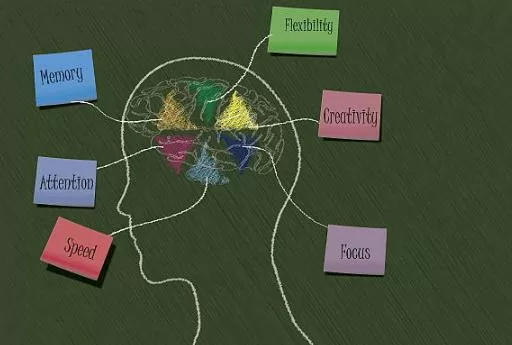How Does Positivity Affect Stress-Related Behavioral Symptoms?
Learn what’s the relationship between positivity and stress-related behavioral symptoms and how cultivating a positive mindset can help alleviate these symptoms.

Selfpause Affirmation App
Download the app to get 1,000’s of affirmation meditations and everything you need to write, record and listen to your own.
Stress is a common experience for many people, and it can manifest in a variety of ways. One of the most common ways stress presents itself is through behavioral symptoms such as social withdrawal, procrastination, and irritability. But did you know that positivity can have an impact on these symptoms?

First, it’s important to understand the connection between stress and behavioral symptoms. When we experience stress, our bodies release a hormone called cortisol. Cortisol plays a vital role in our body’s response to stress and can be beneficial in the short term, but if cortisol levels remain elevated for long periods of time, it can lead to a host of behavioral symptoms such as social withdrawal, procrastination, irritability, and even addiction.
Research has shown that individuals who have a positive outlook on life tend to have lower levels of cortisol and therefore, fewer behavioral symptoms associated with stress. In fact, studies have found that people who score high on measures of positive affect, such as happiness and contentment, have lower cortisol levels compared to those who score low on the measure.

The connection between positivity and cortisol levels can be explained by the fact that people with a positive outlook are more likely to engage in coping strategies that are beneficial to their well-being. Such as regular exercise, healthy diet, and seeking support from friends and family when feeling stressed, these strategies can help to lower cortisol levels and decrease behavioral symptoms associated with stress.
Positivity also plays a role in how we perceive stress. People with a positive outlook tend to perceive stressors as challenges rather than threats. This shift in perspective can lead to a reduction in stress-related behavioral symptoms.

Such as gratitude journaling, where one writes down things that they’re thankful for, can help to increase positive emotions and decrease stress-related behavioral symptoms. Mindfulness practices such as meditation and yoga can also help to cultivate positivity and reduce stress-related behavioral symptoms.
In addition, individuals with a positive outlook tend to have better self-regulation, which can help to reduce stress-related behavioral symptoms. Self-regulation is the ability to control our emotions and behavior in order to achieve our goals. People who have a positive outlook are more likely to have better self-regulation, which can help to reduce stress-related behavioral symptoms such as procrastination and addiction.

Positivity also has a positive impact on our relationships. People with a positive outlook tend to have more satisfying and fulfilling relationships. This is likely due to the fact that positivity leads to more positive interactions with others, increased empathy, and understanding. In turn, these positive interactions can help to reduce stress and improve overall well-being.
Furthermore, positivity can also help to improve our overall mental and emotional well-being. When we’re feeling positive, we’re less likely to experience feelings of anxiety, depression, and other negative emotions. These negative emotions can lead to behavioral symptoms such as social withdrawal, irritability and procrastination. By cultivating positivity in our lives, we can decrease the severity and frequency of these symptoms.

Additionally, positivity can also help to improve our motivation and productivity. When we’re feeling positive, we’re more likely to feel energized and motivated to tackle tasks and projects. This can help to reduce stress-related behavioral symptoms such as procrastination and social withdrawal.
Positive thinking also helps us to maintain a positive perspective, which can help to reduce stress-related behavioral symptoms such as irritability and anger. When we’re feeling positive, we’re less likely to react in a negative way to stressful situations. Instead, we’re more likely to respond with resilience and adaptability.

It’s also worth noting that positivity can have a ripple effect on our overall well-being. When we’re feeling positive, we’re more likely to engage in healthy behaviors such as regular exercise, healthy eating, and getting enough sleep. These healthy behaviors can help to reduce stress-related behavioral symptoms and improve our overall well-being.
In conclusion, positivity has a significant impact on stress-related behavioral symptoms. By cultivating a positive outlook, engaging in coping strategies that promote well-being, and using techniques such as gratitude journaling and mindfulness practices, we can decrease cortisol levels and reduce the behavioral symptoms associated with stress. Positivity also has a positive impact on our relationships, self-regulation and overall mental and emotional well-being. It’s important to note that cultivating positivity is a process and takes time, but with practice and persistence, it can be achieved.
